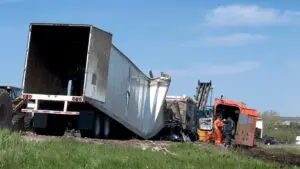What is a Statute of Limitations?
A Statute of Limitations is a law that dictates the timeframe in which a legal action must be pursued. As described by Cornell Law School’s Legal Information Institute, a statute of limitations is a law that “bars claims after a certain period of time passes after an injury.” After the time period dictated by a statute of limitations has passed, and no legal action has been taken following an injury or offense, no future legal action can be pursued.
The length of a statute of limitations varies by jurisdiction and claim. In Pennsylvania, the statute of limitations is two years for personal injury cases, unless the injury happened to someone who was then a minor. In that case, they would have up to two years after their 18th birthday to file a claim. The beginning of the time period in a statute of limitations in a personal injury case typically begins at the discovery of the injury. When the specified time period has passed, cases are almost always dismissed.
Statutes of limitations are meant to encourage timely action by plaintiffs. This keeps potential evidence reliable, and protects defendants from being subjected to unfair proceedings. Statutes of limitations are relevant for both civil and criminal law.
More information about Statute of Limitations
Mississippi Truck Accident Lawyer
If you were in a truck or tractor trailer accident in Mississippi, call Munley Law Personal Injury Attorneys for a free consultation
Mississippi leads the country in motor-vehicle deaths per capita with 26.27 accident-related deaths for every 100,000 residents, which is nearly double the national average and which makes Mississippi America’s deadliest state to operate a motor-vehicle according to the United States Centers for Disease Control and Prevention (CDC). Many of the hundreds of deadly accidents involve large commercial trucks, whose massive sizes, weights, and cargo loads amplify the damage, injuries, and deaths.
If you or a loved one suffered an accident involving a commercial semi-truck in Mississippi, contact an experienced truck accident lawyer at Munley Law Personal Injury Attorneys today. For over sixty years, our award-winning attorneys have been fighting to win big settlements for truck accident victims. We recently negotiated a $26 million settlement for our client who suffered serious injuries from a collision involving a tractor-trailer. […]
Read MoreMore information about Statute of Limitations
North Carolina Truck Accident Lawyers
If You Have Been Involved in a Truck Accident in North Carolina, Call Munley Law Personal Injury Attorneys Today
If you’ve been in a crash in North Carolina involving a large truck, the first thing you should do is to get any necessary medical care, even if your injuries seem minor. Next, call an injury lawyer with the experience and resources to take on a major transportation company. You need a truck accident lawyer who can intervene on your behalf and protect your rights.
Having an experienced, knowledgeable truck accident attorney on your side is the best way to ensure you will be properly compensated for your medical bills, long-term therapy, lost wages, pain and suffering, and other damages you’ve experienced due to the accident. Start by calling Munley Law Personal Injury Attorneys for a free, no-obligation consultation. We will review the details of your case at no charge, […]
Read MoreMore information about Statute of Limitations
West Virginia Truck Accident Lawyers
Dealing with a truck accident in West Virginia can be an overwhelming experience. From dealing with insurance companies to managing medical bills, the challenges are numerous. In such trying times, hiring a West Virginia truck accident lawyer can be a game-changer for you.
Specializing in the complexities of truck accident law, our legal professionals offer invaluable expertise to ensure you receive the compensation you deserve. If you’ve been involved in a collision with a commercial truck, don’t underestimate the importance of securing legal representation that understands both state and federal regulations governing the trucking industry.
The Statistics on Truck Accidents in West Virginia
 According to the Federal Motor Carrier Safety Administration (FMCSA), West Virginia witnessed over 1,500 truck-related accidents in the most recent year for which data is available. The National Highway Traffic Safety Administration (NHTSA) reports that approximately 15% of these incidents resulted in fatalities. […]
According to the Federal Motor Carrier Safety Administration (FMCSA), West Virginia witnessed over 1,500 truck-related accidents in the most recent year for which data is available. The National Highway Traffic Safety Administration (NHTSA) reports that approximately 15% of these incidents resulted in fatalities. […]
More information about Statute of Limitations
Truck Accident Lawyer Washington DC
Washington DC Truck Accident Lawyers with a Record of Success
 If you or a family member were injured or killed in an accident involving a tractor-trailer or large truck in or near Washington, DC, contact the award-winning DC truck accident lawyers at Munley Law Personal Injury Attorneys. For more than 60 years, our attorneys have been fighting and winning big for truck accident victims. Our success with truck cases has made Munley Law Personal Injury Attorneys a recognized leader in the field of truck accident litigation all over the United States. No other truck accident lawyer can match our level of truck expertise.
If you or a family member were injured or killed in an accident involving a tractor-trailer or large truck in or near Washington, DC, contact the award-winning DC truck accident lawyers at Munley Law Personal Injury Attorneys. For more than 60 years, our attorneys have been fighting and winning big for truck accident victims. Our success with truck cases has made Munley Law Personal Injury Attorneys a recognized leader in the field of truck accident litigation all over the United States. No other truck accident lawyer can match our level of truck expertise.
Every day, millions of people commute around DC and into DC from neighboring communities in Maryland and Virginia. There are also millions of tourists, out-of-towners, and others visiting DC every year who are not familiar with the unique roadways, traffic signals, […]
Read MoreMore information about Statute of Limitations
New Jersey Truck Accident Lawyers
Truck accidents can be catastrophic events. The sheer size and weight of tractor-trailers can lead to devastating consequences when accidents occur, causing severe injuries, significant property damage, and, in the worst cases, fatalities. Navigating the aftermath of a truck accident can be overwhelming, especially when dealing with insurance companies, medical bills, and the legal complexities involved. This is where a skilled and experienced New Jersey truck accident lawyer can make all the difference.
consequences when accidents occur, causing severe injuries, significant property damage, and, in the worst cases, fatalities. Navigating the aftermath of a truck accident can be overwhelming, especially when dealing with insurance companies, medical bills, and the legal complexities involved. This is where a skilled and experienced New Jersey truck accident lawyer can make all the difference.
Truck crash claims require the help of a specific type of lawyer. Truck cases are unique and require special legal knowledge and skill. Our dedicated team of truck accident lawyers is committed to helping victims understand their rights and secure the compensation they deserve.
Get started today with a free consultation. We do not charge unless we win your case.
How Truck Accidents Differ from Other Crashes
Truck accidents are fundamentally different from standard car accidents in several critical ways. […]
Read More








